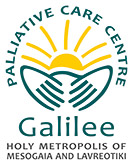What is Palliative Care

“You matter because you are you, and you matter to the end of your life. We will do all we can not only to help you die peacefully but also to live until you die.”
Dame Cicely Saunders
Palliative care was first developed in England in the mid-20th Century by Dame Cicely Saunders.
The aim of palliative care is to prevent and alleviate the physical and mental symptoms of life-threatening illnesses such as cancer, neurological conditions, cardiopulmonary diseases, kidney disease, HIV, and so on, and to provide holistic care and support to patients with the various difficulties they may face.
Palliative Care complements and does not replace the treatment that a patient may be receiving. It can be implemented early on, right from the time of the diagnosis, in combination with chemotherapy and radiotherapy, and it includes the investigation and the management of difficult symptoms and complications.
Palliative care aims through a holistic approach to improve a patient’s quality of life throughout the course of an illness. Emphasis is placed on the following:
- Focusing on the patient and not the illness
- Individualized support depending on a patient’s needs, problems, and wishes
- Relief from pain and other difficult symptoms
- Psychological support
- Participating in dealing with practical problems faced by the patient and family
- Recognizing and supporting the spiritual, emotional, and social needs of patients.
Palliative care aims to ascribe value to every moment, supporting life without trying to hasten or postpone death, and it may positively influence the course of illness.
During the course of an illness, the whole family is affected, not only the patient. Palliative care also includes support for the family throughout an illness, as well as during the period of bereavement, such as providing useful practical advice.
The needs and wishes of the family as well as the patient are incorporated into a palliative care plan. The multi-disciplinary team of health specialists works together to implement the care plan with the common aim of managing the needs and wishes of all, as well as the problems that the illness causes.
The World Health Organisation Global Atlas of Palliative Care at the end of life (2014) states that:
- Palliative care is a human right of every person who suffers.
- Palliative care is needed in chronic as well as life-threatening conditions.
- Palliative care should be delivered on the basis of need, not diagnosis or prognosis.
- Palliative care is delivered on all levels of Health Care, such as: at home, in the community, at a general or specialised hospital, or at a hospice.
- Palliative care can be divided into three different levels (basic, general, and specialised) according to the needs of patients and the need for specialised health-care professionals.
The World Health Organisation estimates that every year forty million people globally are in need of palliative care, but that only 14% receive that care. This includes people suffering from: cancer, heart disease, liver disease, cardiopulmonary failure, kidney failure, neuro-degenerative conditions, HIV/AIDS, diabetes, and other conditions.
According to the European Atlas of Palliative Care 2013, there are no public health service palliative care units in Greece. Pain management is available principally at 57 hospital pain units. The only specialised palliative home care services available are provided by The Galillee Palliative Care Centre to adult patients in the area of south-eastern Attica, and Merimna, in the case of children and adolescents throughout the whole of Attica. In both cases the home care programmes began in 2010.

